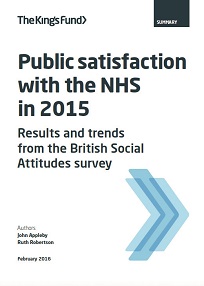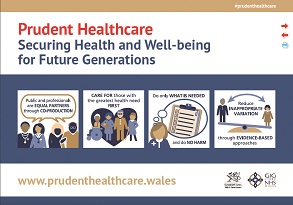News / News review - March 2016
The health secretary duly obliged, telling the Commons he had decided to implement the proposed junior doctor contract despite opposition from doctors. He also announced a review of non-contract measures to improve juniors’ morale. The BMA said juniors ‘cannot and will not’ accept a contract they view as unfair and bad for patient care. It would consider ‘all options’ in response.
The BMA has called three further days of industrial action and is planning a legal challenge. But will the dispute peter out as juniors move into new jobs and the contract becomes an everyday reality? What effect will the imposition of the contract have on juniors’ morale – will they go abroad or to Scotland, Wales or Northern Ireland, where health minister Simon Hamilton has said he wants a negotiated deal? Managers on the ground will have to heal the wounds caused by this dispute.
In the wake of the announcement, the NHS in England was warned it must hold the line and implement the contract consistently. NHS bodies have received letters from NHS Improvement chief executive Jim Mackey and Health Education England chief executive Ian Cumming on the new contract. Mr Mackey wrote about the importance of consistent implementation of the contract throughout the service. Professor Cumming expanded on this. He said he was ‘not prepared’ to see competition for junior doctors based on trusts offering more favourable terms and conditions. Recruitment should be based on patient and service need and the quality of training, he added.
In a further twist, reports of a leaked Department of Health report said it was unable to prove that greater consultant presence and availability of diagnostic tests would lower mortality rates of patient admitted at the weekend. The need for increased weekend staffing is one of the cornerstones of the government’s case for its proposed changes to both consultant and junior doctor contracts.
The other big story of the month – the Carter review – focused attention on efficiency and productivity, and the University of York Centre for Health Economics (CHE) said NHS productivity grew between 2012/13 and 2013/14. In the latest report in its series, the researchers said productivity grew by 2.07% – a substantial rise on the estimated 0.36% growth in the previous year. They found that output growth was 2.64% for the health service as a whole, with quality improvements accounting for 0.27 percentage points of this growth. This was an increase on the previous year’s 2.34% growth.
 However, satisfaction with the NHS is falling, according to the latest British Social Attitudes survey. The data, published by the King’s Fund, saw a fall of five percentage points to 60% satisfied in 2015. At the same time, dissatisfaction rose by eight percentage points to 23%. While general practice remains the area with greatest approval, its satisfaction rate of 69% is 10 percentage points behind 2009 and the lowest GP rating since the survey began in 1983.
However, satisfaction with the NHS is falling, according to the latest British Social Attitudes survey. The data, published by the King’s Fund, saw a fall of five percentage points to 60% satisfied in 2015. At the same time, dissatisfaction rose by eight percentage points to 23%. While general practice remains the area with greatest approval, its satisfaction rate of 69% is 10 percentage points behind 2009 and the lowest GP rating since the survey began in 1983.
The health services in Wales and Scotland both launched initiatives built on value-based care. The Welsh government launched a prudent healthcare action plan. The document, Securing health and wellbeing for future generations, sets out where prudent healthcare can have a big impact – in ensuring tests, treatments and medications are appropriate; changing the outpati ent model; and getting all public services to work together.
ent model; and getting all public services to work together.
A national clinical strategy for Scotland outlined how health and social care will respond to an ageing population, a shift to more multidisciplinary working and rapid advances in technology over the next 10-15 years. The strategy said value is more important than a focus on finance alone. But it conceded that in the period to 2030 the increase in life expectancy is likely to add costs of £120m a year (1% of total spending), while increased cost of medicines would add 5%-10% a year.
The Department of Health confirmed an extra £1bn investment in mental healthcare by 2020 as it accepted the recommendations of the Mental health taskforce report. The taskforce made a number of recommendations, including: funding to ensure all acute hospital emergency departments have mental health liaison services; ending out-of-area acute inpatient care; and supporting 30,000 new and expectant mothers.
NHS Confederation chief executive Rob Webster (above) is to become the new chief executive of South West Yorkshire Partnership NHS Foundation Trust. Mr Webster, who has been at the confederation for two years, said it had been a privilege to lead the body, but he was keen to return to the front line.
Demand pressures normally seen only in winter are being seen at other times in the year, according to research from the Nuffield Trust and Health Foundation. Winter pressures: what’s going on behind the scenes?’ said the 2014/15 winter was the most difficult for the NHS since it started collecting weekly figures on key metrics such as waiting times. In February, the Welsh government allocated an additional £45m to the NHS to help it deal with winter pressures. The funding, allocated to this year’s budgets, will come from government reserves.
Current arrangements for managing the supply of clinical staff to the NHS are fragmented and do not represent value for money, the National Audit Office said. While conceding the size of the NHS workforce (824,000 full-time equivalent clinical staff) made planning difficult, it insisted Health Education England do more to strengthen the process. Managing the supply of NHS clinical staff in England said vacancies were 5.9% in 2014 (50,000 whole-time equivalent clinicians) and 61% of temporary staffing requests in 2014/15 were to cover vacancies.
Monitor has launched an investigation into Southend University Hospital NHS FT after an independent audit found problems with the way it analyses patient services costs. The regulator is to work with the trust to ensure national costing guidance is followed. While Monitor had agreed after a 2015 audit that the trust use national averages rather than its own data, it said little progress had been made.
The month in quotes
‘Prudent healthcare describes the distinctive way of shaping the Welsh NHS to ensure it makes the most effective use of all its resources and staff skills, to secure health and wellbeing for our future generations.’
Wales health minister, Mark Drakeford
‘Our message to the government is clear: junior doctors cannot and will not accept a contract that is bad for the future of patient care, the profession and the NHS as a whole, and we will consider all options open to us.’’
BMA junior doctors’ leader, Johann Malawana
 ‘The summer months have started to show performance similar to past winters. This has a knock-on effect in the months that follow, particularly on planned operations, thus making it harder for the health service to cope each winter. It’s then more difficult for hospitals to recover the following summer, which could lead to a continued downward spiral.’
‘The summer months have started to show performance similar to past winters. This has a knock-on effect in the months that follow, particularly on planned operations, thus making it harder for the health service to cope each winter. It’s then more difficult for hospitals to recover the following summer, which could lead to a continued downward spiral.’
The Nuffield Trust’s, Elizabeth Fisher
‘While I understand that this process has generated considerable dismay among junior doctors, I believe that the new contract we are introducing - shaped by Sir David Dalton, and with over 90% of the measures agreed by the BMA through negotiation - is one that in time can command the confidence of both the workforce and their employers.’
Health secretary, Jeremy Hunt
In the media
The publication of the final Carter report on productivity and efficiency in NHS acute trusts led to requests for HFMA comments. In the Health Service Journal, HFMA policy and technical director Paul Briddock said the report recommendations should not be used as a stick to beat finance directors and their teams. ‘Ensuring the process of implementing Lord Carter’s recommendations is collaborative and open, rather than top-down, with the entire healthcare system working together will be vital,’ he said
In Pharma Times he said the report brought the NHS a step closer to understanding exactly where to find the savings outlined in Carter’s interim re port.
port.
Several reports on the financial position of the NHS in England (see p8) included the King’s Fund quarterly performance report. This estimated the NHS deficit would reach around £2.3bn by the end of 2015/16. Mr Briddock told Hospital Doctor that despite finance directors’ earlier confidence that quality could be maintained, the financial position had deteriorated further and was having an effect on services.
Following the publication of the Monitor/ NHS Trust Development Authority quarter three figures, he told The Guardian that it was disappointing so many key performance targets had been missed.
Related content
The Institute’s annual costing conference provides the NHS with the latest developments and guidance in NHS costing.
The value masterclass shares examples of organisations and systems that have pursued a value-driven approach and the results they have achieved.